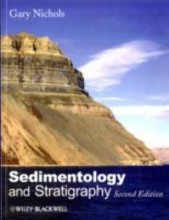(Un)certainty in hydrological modeling: Model confirmation
17 important questions on (Un)certainty in hydrological modeling: Model confirmation
When is a model 'good'?
Where did knowledge come from before empiricist method (observations)?
What is the demarcation problem and why did it become an issue during the empiricist method?
During the empiricist method, everyone got more access to knowledge by making observations.
- Higher grades + faster learning
- Never study anything twice
- 100% sure, 100% understanding
What did the Vienna Circle (Wiener Kreis) think about? What is the discourse they came up with?
Verificationism (logical positivism, empiricism):
- Hypothesis-testing: empirically verifiable
- Driven by observations
- From observation to theory through induction
- Theory could be: verified/adapted/rejected
What is currently most used in science, even though it is not often criticized since it is 'just the way we do science' and 'we sort of have an opinion about what is a good NS value'?
Give an example of of the fallacy of affirming the consequent in modeling
Our model reproduces observations, so it is correct (this is NOT true, there might be other options that could cause the model to be correct).
We can be right for the wrong reasons!
What does the falsificationism (or critical rationalism) state? What does it imply for the use of models?
You could never use the model for practical applications.
What did Karl Popper (1902-1994) say? What discourse did he found?
Falsificationism: all you need is one observation to prove the opposite, which is stronger than looking for endless confirmation (since you would need an infinity of observations). You can only prove your theory is wrong, not that it is right.
What are the two main schools of thought in philosophy of science?
Critical rationalism (Karl Popper): theories have to be testable (hypothesis-testing) but also falsifiable
They don't obey their own rules: their own theories as stated above are not testable or falsifiable themselves.
What is Bayes' theorem (1702-1761)
You have to make a combi of prior knowledge and confront it with new observations and adapt our degree of belief based on new observations.
So basically: the probability of a theory in the face of evidence
What is the cycle of Bayesian inference? Describe its advantages in one sentence.
Prior -> confront prior with new obs -> re-establish posterior --> becomes prior --> etc.
(updated degree of belief in your the face of evidence)
Strong combi of established knowledge, personal faith in knowledge and new observations
What is the Duhem-Quine thesis?
What does science and technology studies do? How is this different from philosophy of science)?
Philosophy of Science: How science should be conducted
What did Thomas Kuhn define?
Normal science: a scientifically based model of understanding (paradigm) - all scientists work in predefined paradigm
Model drift: accumulation of anomalies and unexplained phenomena - too many unexplained phenomena that cannot be explained by theory
Model crisis: The model is broken and can no longer be used as guide to problem solving
Model revolution: Serious candidates for radically new models emerge
Paradigm change: A single new paradigm emerges and the field changes from the old to the new paradigm
Back to normal science (it's a loop).
What's a paradigm shift and who came up with it?
A fundamental change in the frameworks of the scientific discipline, e.g. New experimental technique
Thomas Kuhn
What is a paradigm and which guy should I think about then?
Thomas Kuhn
What did Feyerabend develop?
epistemology: theory of knowledge/how can we develop knowledge?
Feyerabend's answer: it's complete anarchy
He thinks there is no demarcation problem: there is no difference.
The question on the page originate from the summary of the following study material:
- A unique study and practice tool
- Never study anything twice again
- Get the grades you hope for
- 100% sure, 100% understanding






























